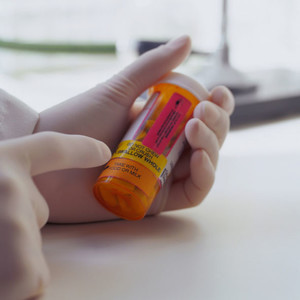FDA has given a grant to the University of Cincinnati, Ohio, USA, in order to support a study into a commonly used immunosuppressive drug for transplant patients, tacrolimus.
Professor Rita Alloway, Research Professor of Medicine and Director of Transplant Clinical Research at the University of Cincinnati, Department of Internal Medicine, has received a US$2.7 million FDA grant to run a clinical trial studying the immunosuppressant Prograf (tacrolimus) against two generic versions of tacrolimus in liver and kidney transplant patients.
Tacrolimus is an immunosuppressive drug that is mainly used after organ transplant to reduce the activity of the patient’s immune system and so lower the risk of organ rejection. FDA first approved Tacrolimus in 1994 for use in liver transplantation. This has since been extended to include kidney, heart, small bowel, pancreas, lung, trachea, skin, cornea, bone marrow and limb transplants.
The brand-name drug, Prograf, is manufactured by Astellas Pharma. Generics of tacrolimus have been available in the US since 2009 and there are currently six tacrolimus oral tablet generics from Accord Healthcare, Dr Reddy’s Laboratories, Mylan, Panacea Biotech, Sandoz and Watson Laboratories approved by FDA. There are currently no generic formulations of injectable tacrolimus approved in the US. In Europe, Astellas Pharma markets tacrolimus under the brand name Advagraf and Modigraf and tacrolimus oral tablet generics have been approved at a national level in several EU countries.
Tacrolimus is a ‘critical dose’ drug, i.e. a medication in which the dosage level between efficacy and unwanted side effects is very close. Too low a dose and the organ may be rejected, but too high a dose can produce severe side effects, including cardiac damage, liver and kidney problems (toxicity) and lung damage. Professor Alloway says that this has ‘led transplant physicians and their patients to be wary of using generic immunosuppressants’.
The study aims to address these concerns in a prospective, blinded, six-way crossover study in kidney and liver transplant patients testing whether the two most disparate generics, based on potency, purity, and dissolution, are bioequivalent to the brand-name drug in stable transplant patients.
Currently more than 50% of transplant patients are dispensed generic tacrolimus, according to Professor Alloway. This, however, could be increased if there was convincing evidence to prove interchangeability of generic tacrolimus.
The study will investigate whether the generics have the same efficacy in healthy post-transplant patients as the brand-name drug. In addition, the study will evaluate patients designated genetically as ‘poor absorbers’ or ‘high metabolizers’, who are at a greater risk of receiving lower or higher concentrations of the medication than desired.
The trial will enrol 72 transplant patients (36 kidneys and 36 livers) transplanted in the University of Cincinnati Health University Hospital and Cincinnati Christ Hospital transplant programmes and is expected to start in early 2013.
GaBI Journal is currently producing a Special Issue (educational editorial series) on ‘Generic Immunosuppressant‘, with Professor Teun van Gelder (Erasmus University Medical Center Rotterdam, The Netherlands) as the Guest Editor; contact us for more information on this Special Issue.
Related articles
Suggestions for increasing generics use in Abu Dhabi
Use of generics in Abu Dhabi
Maximising the potential of generics in Abu Dhabi
Permission granted to reproduce for personal and non-commercial use only. All other reproduction, copy or reprinting of all or part of any ‘Content’ found on this website is strictly prohibited without the prior consent of the publisher. Contact the publisher to obtain permission before redistributing.
Copyright – Unless otherwise stated all contents of this website are © 2013 Pro Pharma Communications International. All Rights Reserved.
Source: EMA, FDA, University of Cincinnati








 0
0











Post your comment